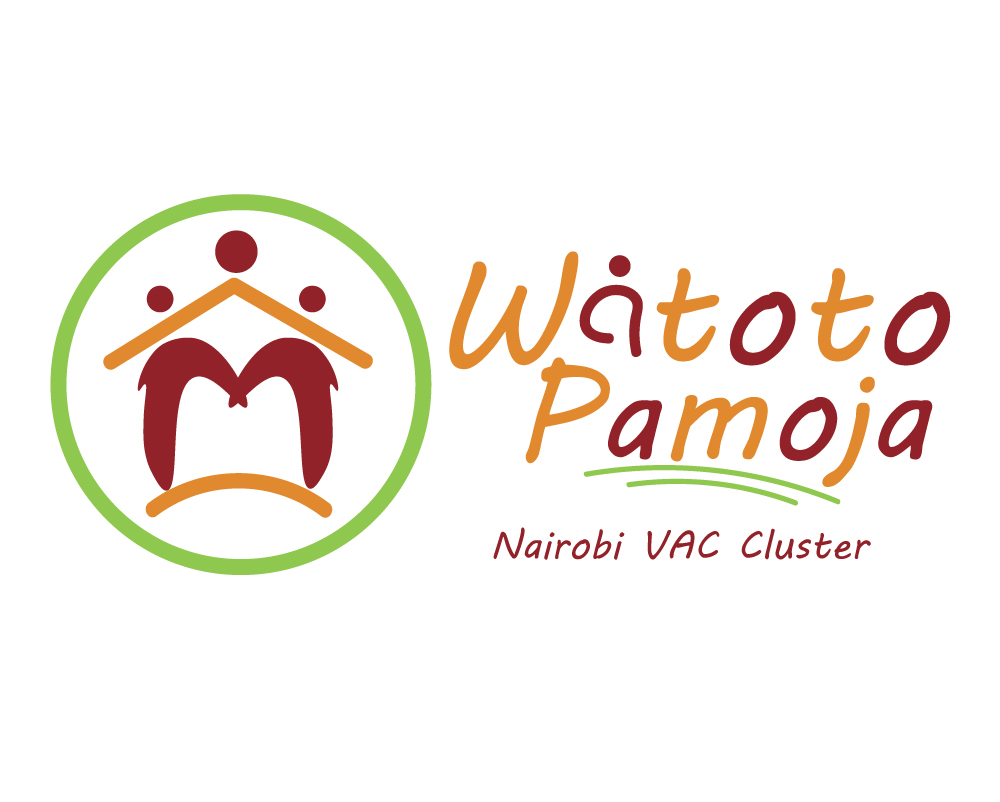Watoto Pamoja

Through Watoto Pamoja we seek to advance violence-free environments in homes, schools and community for children & adolescents to develop their full potential in Korogocho Slums, Nairobi County.
Violence against Children and Adolescents entails all forms of violence against people under 18 years old for children and 24 years for adolescents. The violence can be physical, emotional/psychological or sexual and includes neglect or negligent treatment, resulting in actual or potential harm to a child’s health, survival, development or dignity (UNICEF, WHO). The inclusion of target 16.2 in the 2030 Agenda for Sustainable Development to end all forms of Violence against children and adolescents gives renewed drive towards the realization of the right of every child to live free from fear, neglect, abuse, and exploitation. Kenya ratified the UNCRC as well as the African Charter on the Rights and Welfare of the Child (ACRWC), representing a commitment towards response and prevention of all forms of violence against children.
Mathare is a collection of slums, and the second largest informal settlement in Kenya after Kibera, with a population of approximately 500,000 persons. Mathare 4A is one of its 13 villages and is a sub-location of Utalii Ward in Kasarani Sub-County of Nairobi County. Poor social amenities, poor planning in housing, sewers, lack of clean and piped water, insecurity incidences, and lack of well-planned solid waste system (JOFA 2021) characterize it. Owing to the poor access to sanitation facilities, affordable healthcare, sustainable job opportunities, residents in the settlement are now more vulnerable heath, economic and social shocks caused by COVID-19 (UN Habitat, 2020).
Mathare has a high level of poverty, insecurity, insecure tenure, and a lack of access to economic opportunities, which fuel violence against children, with most children resorting into sexual exploitation, drug abuse or robbery with violence for survival. Despite a huge number of people working both in and out of the slum, a large percentage of the population has either no regular income, or earns too little to afford the costs of food and rent, hence children end up dropping out of schools, with parents subjecting them to child labour, to supplement the meagre family earnings. Housing is semi-permanent with predominant iron-sheets, and a few recently built tiny rental units in which families have to squeeze in to reside.
This leaves no room for privacy by the parents, with rooms partitioned only by a bedsheet or a piece of cloth. This housing setup exposes children to early exposure to sexual activities at a tender age. Mathare 4A is highly volatile politically, owing to the increasing rates of youth unemployment, slum culture, its cosmopolitan nature and being a hub of drug abuse and increasing criminal groupings, which makes it rife for violence against children.
The cluster, which comprises Slum Child Foundation and PaaMoja Initiative, conducted a qualitative Situational Analysis to establish the status of violence against children and adolescents, within a Planning and Learning grant from Children Rights and Violence Prevention Fund (CRVPF). The study identified the existence of violence against children and adolescents aged 10-24yrs in Mathare 4A Sub-Location that was the target study area and the target location for the envisioned project.
The forms of violence against children and adolescents included Physical Violence through harsh beating by parents at home, corporal punishment by teachers in school, bullying within the school by peers and within the community by youth gangs. Sexual Violence entailed sexual harassment, early exposure to sexual activities by their parents owing to the housing nature, child marriages, incest, defilement, rape, cat calling, and sexual assault or misappropriate touching to the girls, and a few cases of sodomy to the boys.
https://unhabitat.org/sites/default/files/2021/08/the_case_of_mathare_final.pdf
Emotional/Psychological Violence reportedly included bullying, threats and verbal insults by parents at home, or by teachers at school. The community youth gang-groups also hurled threats and insults to the girls, whenever they turned down the girls turned down their sexual advances. Reportedly, parents cursed a lot, and meted their emotional distress on children through outbursts.
Parents going through domestic violence also subjected the children to the emotional distress of witnessing their alternations and physical fights in escalated cases.
Neglect was through parents depriving their children of educational, food and other basic needs. Further, parents spend very little time with their children and focus more on working to earn a living, and leave their children to learn how to survive by themselves.
The causes of violence were due to the high levels of household poverty. The increasing cases of violence against children also attributed to the lack of life skills where children in and out of school are not able to discern violence and to self-prevent themselves. Further, children who have dropped out of school lack the essential skills to build their resilience and rise above their external environmental factors that expose them to violence against them. The limited community structures and systems for prevention of violence against children and adolescents also worsens the situation. Most of the current structures currently focus on responding, which is also not done appropriately.
The prevailing Covid-19 pandemic has exacerbated violence against children and deterred parents from sufficiently providing the basic needs for their children, and contributed to the emotional distress resulting from the financial constraints. The consequential loss of jobs due to Covid-19 spiked the cases of domestic violence and subsequent violence to children at home, due to spouses spending long periods of time together at home, with no jobs and with meager means of providing and tending to the daily needs of their children, the surging economic inflation notwithstanding.
As such, it is imminent that measures for the prevention of violence are critical to advance the creation of safe environments for the prevention of violence against children at home, school and the community. For children in and out of school to gain essential life skills for their self-prevention and increased resiliency to mitigate factors that expose them to violence, for parents to improve their parenting skills and practices and strengthen their household income to provide for their children.
For better spousal relations that no intimate partner violence witnessed by children and adolescents, for teaching and non-teaching staff to strengthen skills in advancing safe school environments. For the community to champion the alleviation of violence against children and adolescents through a change of the social norms and values, and community-based preventive mechanisms in close collaboration with the relevant local/county leaders who are also the policy makers’/change influencers and enforcers.
It is against this backdrop that the cluster is planning this project, which will implement impactful, scalable and sustainable interventions for advancing violence free homes, schools and communities to enable children and adolescents in Mathare A4 develop their full potential.


